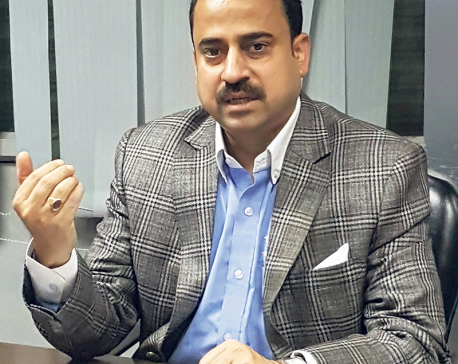
OR
KTM-Tarai Fast track
Thursday’s cabinet decision to build the 76-km Kathmandu-Nijgadh expressway with Nepal’s own resources could be a game-changer. This is because never before has a project of this scale—with an estimated cost of around Rs 100 billion—been undertaken by Nepalis alone. Previously, it would have been unthinkable for Nepal to think of such ambitious projects without asking for help from its bilateral and multilateral donors. In fact, if the government of Sushil Koirala had its way, even the Kathmandu-Nijgadh fast track project was to go to a foreign contractor. But the decision to award it to the Indian consortium led by Infrastructure Leasing and Financial Services (IL&FS) became controversial right from the start. On successfully winning the bid to build the expressway, the consortium then inexplicably asked for Rs 15 in grant from Nepal government. It also wanted Nepal to guarantee revenues of Rs 20 billion a year should the expected traffic on the expressway fail to materialize. The opposition parties rose up in arms against such conditions that were clearly against national interest. The Supreme Court agreed and in October 2015 ruled against awarding the contract to the Indian consortium.
It was a timely intervention from the judiciary. If Nepal had agreed to the conditions of the Indian consortium, the Nepali state would potentially have had to pay out billions of rupees every year in perpetuity. But why agree to such conditions when there is no need to ask foreigners to come and build such projects for us? The capital market in Nepal is strong enough to come up with the project cost of Rs 100 billion. In fact, the cabinet on Thursday has already formed a seven-member committee under National Planning Commission Vice-chairman Min Bahadur Shrestha to work out the best way of funding the project. The committee will also decide whether the DPR prepared by the Indian consortium is still useful or a new plan has to be drawn up. Whatever the case, it is now certain that Nepal will be building the project on its own. And if it comes through on time, it will be one project that all Nepalis can take pride in—it will be built by the Nepalis and for the Nepalis. There could be no greater boost to the flagging national morale than to pull off such a challenging project on our own.
We now hope that the committee under NPC vice-chair Shrestha completes its assigned duty within the month’s time it has been given and thus clear the way for construction.
What we fear the most as we undertake this vital project is that the initial zeal could soon die and the project could be held in limbo, for years on end, as has been the case with most of our other important national undertakings such as the Melamchi drinking water project and the Gautam Buddha International Airport in Rupandehi. We will have to guard against such complacency; for we can’t afford to get this one wrong. If the fast track project is a success, the confidence it will give our investors and builders will herald a new era in Nepal’s development. If it fails, it will be an unmistakable sign that the country still has to rely on the outside world to get anything important done.
You May Like This

We are supporting schools through test ride campaign
Sipradi Trading Ltd, the authorized distributor of Tata Motors for Nepal, started its 'Test Drive for Education' campaign in September... Read More...

'Burst test' technology to test quality of gas cylinders
KATHMANDU, July 19: The government has begun preparation to install 'burst test' facility to test quality of liquefied petroleum (LP)... Read More...

No mechanism to test quality of bitumen
BIRGUNJ, Oct 7: It has been revealed that there is no mechanism to test the quality of bitumen - a key... Read More...

Just In
- World Malaria Day: Foreign returnees more susceptible to the vector-borne disease
- MoEST seeks EC’s help in identifying teachers linked to political parties
- 70 community and national forests affected by fire in Parbat till Wednesday
- NEPSE loses 3.24 points, while daily turnover inclines to Rs 2.36 billion
- Pak Embassy awards scholarships to 180 Nepali students
- President Paudel approves mobilization of army personnel for by-elections security
- Bhajang and Ilam by-elections: 69 polling stations classified as ‘highly sensitive’
- Karnali CM Kandel secures vote of confidence


















Leave A Comment